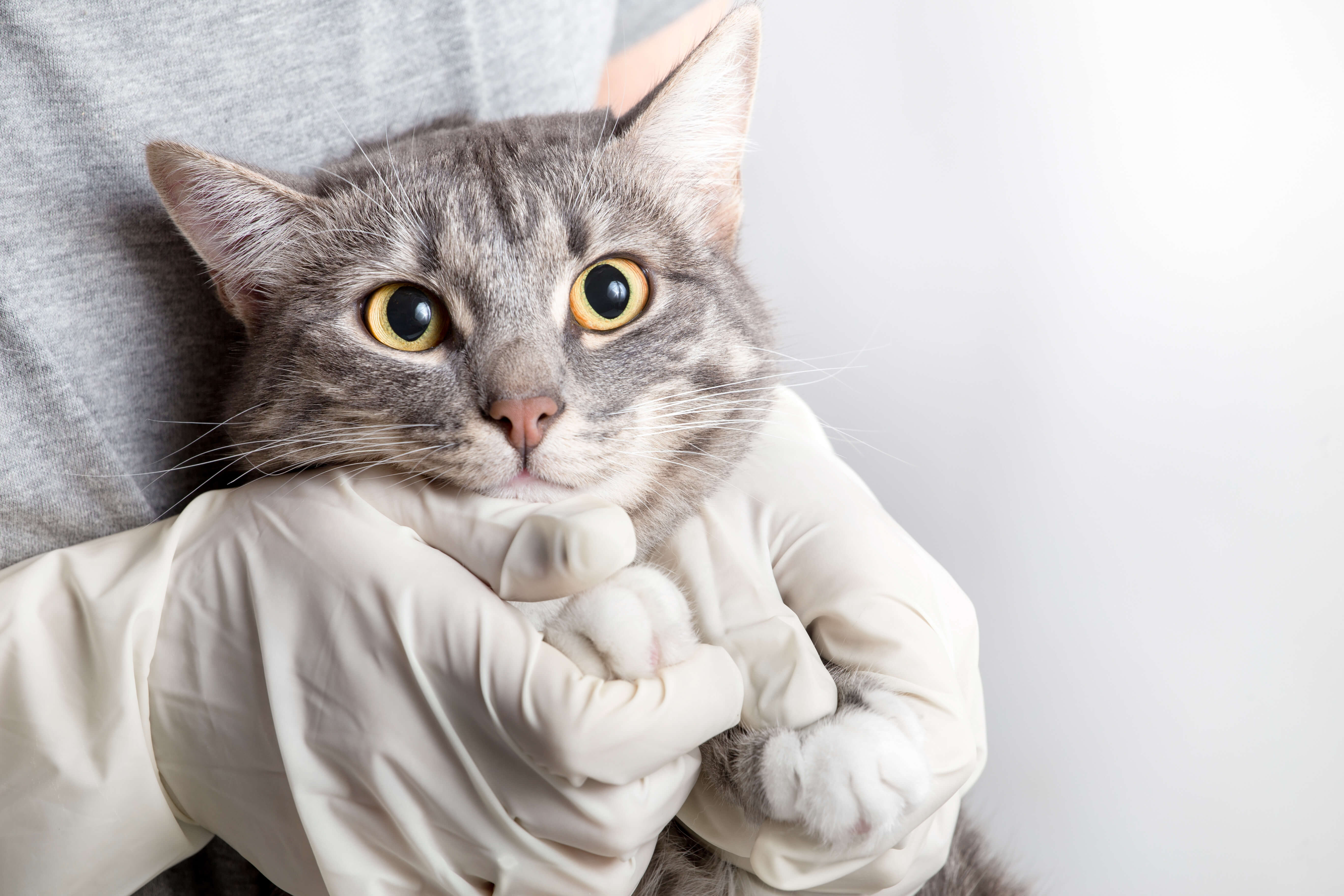Diabetes in Cats – Symptoms, Causes and Treatment
May 1st, 2019

Did you know that feline diabetes has been on the rise? Staying informed and recognizing the clinical signs of diabetes will ensure we can start treatment as soon as possible. If in doubt, please contact your caring team at All About Cats Veterinary Hospital. We will make sure to diagnose and treat any health condition that may affect your kitty’s quality of life.
What is Feline Diabetes?
As with humans, diabetes is a condition in which the body can no longer produce enough of or properly use the hormone insulin to break down the sugars in food. In Type I diabetes, glucose concentrations are high because of decreased production of insulin by the pancreas, while in Type II diabetes, the most common form of diabetes, glucose levels are high because the cells in the cat's body do not respond appropriately to insulin.
Causes of Diabetes in Cats
While the exact causes of feline diabetes are not known, it is more likely to affect cats that are obese. Older cats are also more prone to diabetes, as well as cats with chronic pancreatitis and hyperthyroidism. Certain medications including corticosteroids have also been linked to diabetes.
Symptoms of Feline Diabetes
The primary symptoms of diabetes are increased thirst and urination. Your cat may also experience increased hunger, poor appetite, weight loss, lethargy, jaundice, vomiting, and/or depression. If you notice any of these signs, contact us right away to ensure your fur baby gets the needed care.
Diagnosing Feline Diabetes
We will start by evaluating your cat's medical history and any symptoms. A lab test to detect sugar in the urine will determine if your cat has diabetes. Once a diagnosis is confirmed, we will begin treatment right away.
Treating Feline Diabetes
There is currently no cure for diabetes. Treatment involves managing the condition to ensure your kitty thrives and enjoys a healthy, happy life.
Treating diabetes starts with addressing your kitty’s diet. In some cases, changes in diet and a weight loss program can help alleviate the symptoms of the disease. Some cats require a diet high in fiber and complex carbohydrates, while others need a low carbohydrate diet to achieve a healthy weight.
In addition to changes in diet, your kitty may need oral medication to help with insulin resistance. You will need to check your furry companion’s sugar levels frequently to ensure the medicine is effective. Some diabetic cats may require insulin injections. We will prescribe the ideal dosage based on your cat’s needs and will teach you how to administer these injections at home.
We Are Here For You
Contact us at All About Cats Veterinary Hospital for more information on how to best care for a cat with diabetes. We are committed to providing your feline friend with purr-fectly compassionate and comprehensive care. You can always count on us.
Recent Posts
-
Summer Safety Tips for Cat Owners
July 11th, 2024
-
The ABCs of Cat Vaccinations – What Every Cat Owner Should Know
June 5th, 2024
-
Preparing for Travel With or Without Your Feline Friend
May 3rd, 2024
-
How to Feed Cats in a Multiple-Cat Household
April 8th, 2024
-
8 Tips to Get Your Cat in a Carrier
March 5th, 2024
-
Help, My Cat’s Breath Smells!
February 5th, 2024
-
A Quick Guide to Coping with Cat Emergencies
January 8th, 2024
-
Traveling for the Holidays? 6 Things to Do Before Leaving Your Cat
December 14th, 2023
-
What Is Catnip and Is It Safe for Your Cat?
November 2nd, 2023
-
5 Tips for New Cat Owners
October 5th, 2023
-
How Often Should My Cat Have a Health Check?
September 7th, 2023
-
Cat Hairballs – What Do I Need to Know?
August 4th, 2023
-
How to Play with Your Cat: Fun Cat Activities
July 4th, 2023
-
What to Know About Your Cat’s Surgery
June 10th, 2023
-
Licensed Veterinary Technician or Technician Assistant Wanted (Full time or Part time)
May 15th, 2023
-
Why, Oh Why, Does My Cat Hate Water?
May 9th, 2023
-
What’s Wrong with My Cat? Benefits of Whole-Body Radiology
April 5th, 2023
-
Should I Feed My Cat a Grain-Free Diet?
March 6th, 2023
-
Smelly Cat, Smelly Cat – Causes of Feline Odors
February 22nd, 2023
-
5 Ways to Reduce Cat Shedding
January 3rd, 2023
-
Your Cat’s Holiday Stress – How to Help
December 6th, 2022
-
Pet Cancer Awareness Month: Warning Signs to Look Out For
November 2nd, 2022
-
10 Halloween Safety Tips for Cat Owners
October 3rd, 2022
-
Why Is My Cat So Active at Night?
September 7th, 2022
-
Should I Really Microchip My Cat?
August 9th, 2022
-
Ways to Keep Your Cat Safe and Cool This Summer
July 1st, 2022
-
10 Fascinating Facts About Persian Cats
June 1st, 2022
-
How to Correctly Transition Cat Foods
May 6th, 2022
-
What Your Cat’s Tail Is Secretly Trying to Tell You
April 5th, 2022
-
6 Common Household Items That Are Poisonous to Cats
March 1st, 2022
-
How Do I Know if My Cat Needs Dental Surgery?
February 16th, 2022
-
How to Safely Introduce Your Cat to Your New Baby
January 11th, 2022
-
Giving a Cat as a Christmas Gift: How to Do It Responsibly
December 6th, 2021
-
5 Thanksgiving Foods That Are Toxic to Cats
November 5th, 2021
-
Is My Kitty Depressed? Signs to Look For in a Sad Cat
October 7th, 2021
-
Training Tips for New Kitten Owners
September 7th, 2021
-
Taking Your Cat to the Vet: How to Make It a Stress-Free Experience
August 6th, 2021
-
The Origins and History of the Tabby Cat
July 13th, 2021
-
We are hiring a Veterinary Technician!
July 12th, 2021
-
Kitty Claw Control: How and When to Cut Your Cat’s Nails
June 7th, 2021














